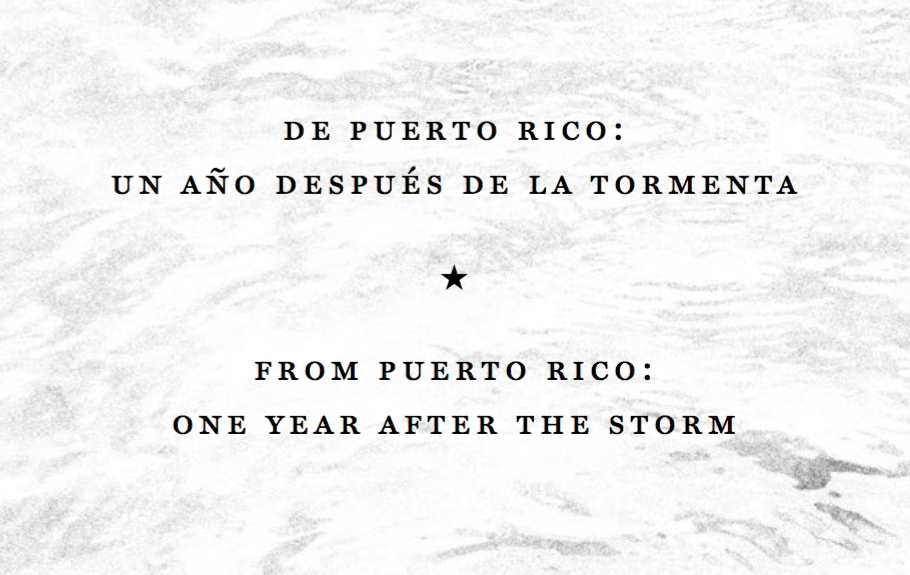Poems by MARA PASTOR
Translations by MARÍA JOSÉ GIMÉNEZ

Homage to the Navel
Navels end sometimes.
Before that happens,
the body draws a road
from the door
through which you will arrive
to the place of areolae
where you will calm your hunger.
Origin of anthill
of white light that from me
will return to you to teach us
that a navel ends
when another is
about to begin.
Homenaje al Ombligo
Los ombligos acaban a veces.
Antes de que eso pase,
el cuerpo dibuja un camino
desde la puerta
por la que llegarás
hasta el lugar de aureolas
en donde calmarás el hambre.
Origen de hormiguero
de luz blanca que de mí
regresará a ti para enseñarnos
que un ombligo acaba
cuando otro está
a punto de comenzar.
Last Names on the Body
In 1837 William Montgomery
believed he was the first to discover
the areolar glands that populate
my nipples full of milk.
We have since called them
Montgomery tubercles.
I prefer to call it sugar freckle,
milk oasis, sunflower pollen.
In 1872 John Braxton believed he was the first
to discover the contractions
that prepare me for my daughter’s arrival.
Now we call that unexpected might
that contracts the flesh of my womb
Braxton contraction. I prefer
to call it birthing rehearsal,
sudden flood, underwater volcano.
In 1886 James Chadwick identified,
in front of another group of men,
the violet color of labia about to conceive.
The Chadwick sign, they call it.
For me, nothing more like
an eggplant becoming the cosmos.
The nomenclature of expectant bodies
is the strange poetry of a demiurge
that has nothing to do with those gentlemen.
Linea alba, primiparous, gravid lunacy.
May I give a mountain my last name
because I gaze at it? May I
name my lover’s mole
with my last name because I discover it?
The day we erase their names
from women’s bodies,
another tongue will write their expansion.
Apellidos en el Cuerpo
En 1837 William Montgomery
creyó ser el primero en descubrir
las glándulas areolares que pueblan
ahora mis pezones llenos de leche.
Desde entonces, les decimos
tubérculos de Montgomery.
Prefiero decirle peca de azúcar,
oasis de leche, polen de girasol.
En 1872 John Braxton creyó ser el primero
en descubrir las contracciones
que me preparan para la llegada de mi hija.
Ahora le decimos a esa fuerza inesperada
que contrae la materia de mi vientre
contracción de Braxton. Prefiero
decirle ensayo de alumbramiento,
inundación repentina, volcán submarino.
En 1886 James Chadwick identificó,
frente a otro grupo de hombres,
el color violáceo de la labia por concebir.
El signo de Chadwick le dicen.
Para mí nada más parecido
a una berenjena que se hace cosmos.
La nomenclatura de los cuerpos expectantes
es la extraña poesía de una demiurga
que nada tiene que ver con estos señores.
Línea alba, primípara, lunática gravidez.
¿Puedo ponerle a una montaña mi apellido
porque la contemplo? ¿Puedo
nombrar el lunar de mi amado
con mi apellido porque lo descubro?
El día que borremos sus nombres
del cuerpo de las mujeres,
otra lengua escribirá su expansión.
Mara Pastor is a Puerto Rican poet. Her works include the translated chapbooks As Though the Wound Had Heard and Children of Another Hour, and, in Spanish, Sal de Magnesio, Arcadian Boutique, and Poemas para Fomentar el Turismo. She lives in Ponce, Puerto Rico.
María José Giménez is a poet, translator, and editor who has received fellowships from the National Endowment for the Arts, the Banff International Literary Translation Centre, and the Katharine Bakeless Nason Endowment. Assistant translation editor of Anomaly, Giménez is the translator of Tilting at Mountains (Edurne Pasaban), Red, Yellow, Green (Alejandro Saravia), and As Though the Wound Had Heard (Mara Pastor).




